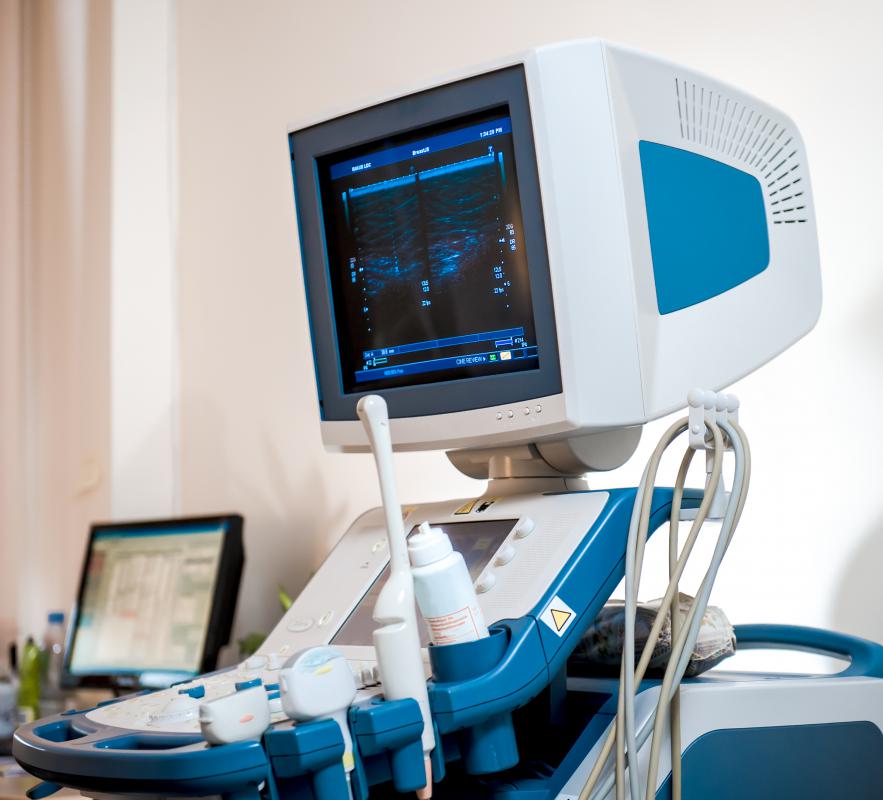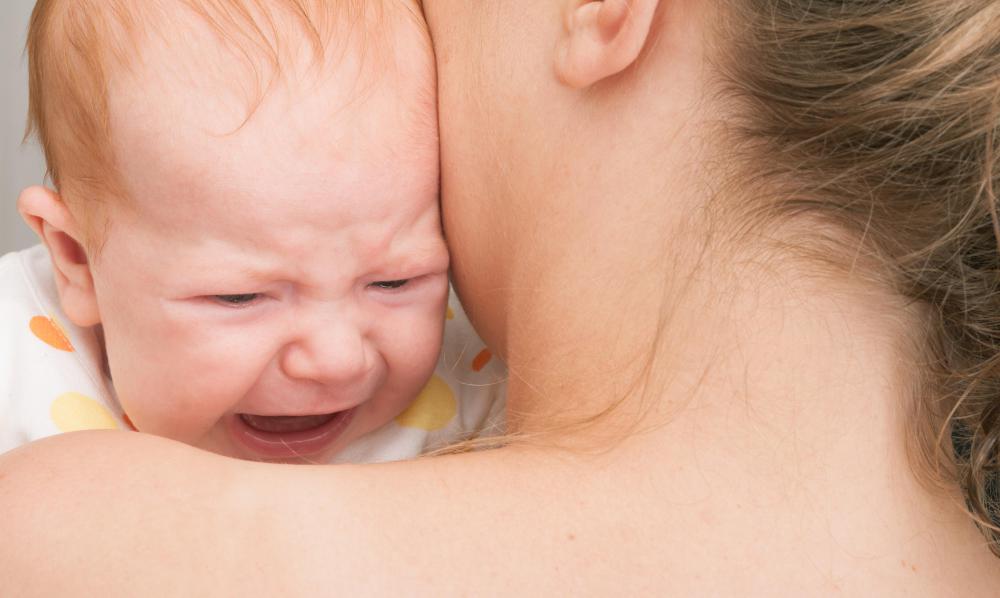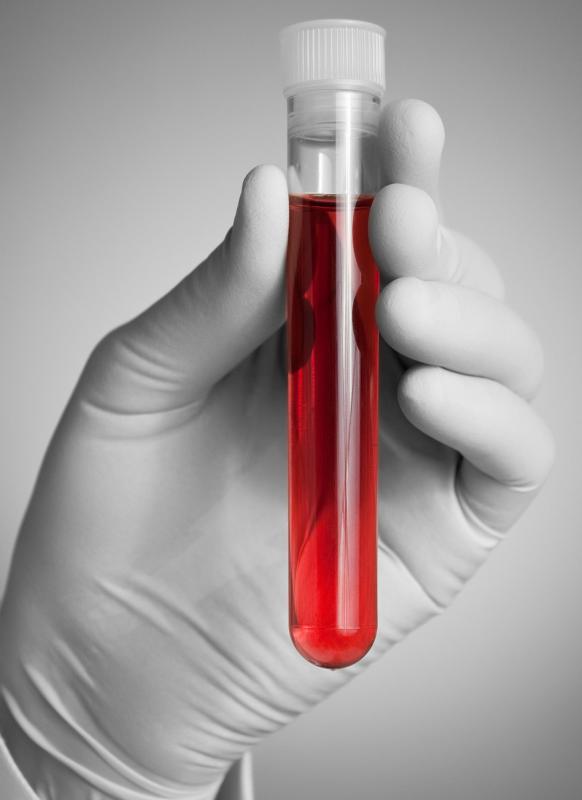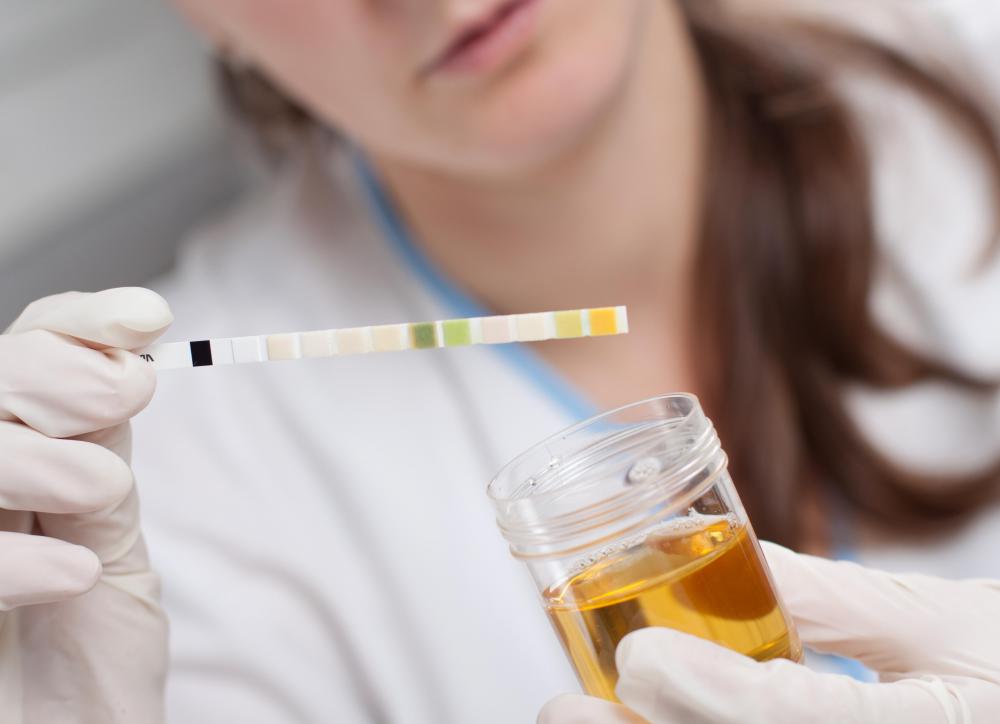At WiseGEEK, we're committed to delivering accurate, trustworthy information. Our expert-authored content is rigorously fact-checked and sourced from credible authorities. Discover how we uphold the highest standards in providing you with reliable knowledge.
What Is Prune Belly Syndrome?
Prune belly syndrome is a serious birth defect. Generally, the syndrome is made up of three different problems in a newborn baby. The defects that make up this syndrome involve severely underdeveloped abdominal muscles, multiple problems of the urinary tract and undescended testicles. Although, it is possible for a baby of any gender to have this rare syndrome, it is generally seen in males. Children with this syndrome will usually have an abdomen with a pot belly shape that may be wrinkly like a prune in appearance.
The abdominal muscles in a baby with prune belly syndrome may be underdeveloped, very weakened or absent all together. As a result of deficient or lacking muscles, the baby's stomach may bulge significantly. In addition, most babies with this condition have severely distended bladders and other significant abnormalities in the urinary tract. The cause of this syndrome is not distinctively known, though scientists believe that the prune belly syndrome birth defect forms during the early weeks of gestation.

Usually, the most obvious symptom of prune belly syndrome is the pot belly look of the abdomen. If the bladder is very enlarged, this will also present a number of urinary problems. It may be difficult to urinate and the urine may backflow into the urinary ureters and kidneys. There can also be frequent urinary tract infections. This syndrome can cause delayed sitting and walking in babies as well.

Sometimes, mothers carrying babies with this birth defect will exhibit certain concerning symptoms. In many cases, an ultrasound done on an expectant mother will reveal that the unborn baby has an abnormally large abdomen or bladder. The kidneys may also appear particularly large. In addition, the mother may have a low level of amniotic fluid for the duration of the pregnancy.

Certain tests may be conducted on a baby after birth to diagnose the syndrome. The initial tests may include blood tests, ultrasounds and X-rays. Specialized tests may also be conducted to examine the urinary tract. An intravenous pyelogram (IVP) may be an example of a specialized test. This type of test may be done for a close view of urinary organs such as the bladder, kidneys and ureters.

Prune belly syndrome treatment will typically involve surgery in most cases. Babies commonly have surgery early in life to correct the deformities in the abdominal muscles. Urinary problems can be extensive in children with this syndrome. For this reason, surgery may greatly be done to correct abnormalities in the urinary tract also. Baby boys suffering from the undescended testicle symptom may have additional surgery to correct that abnormality.

In general, a prune belly syndrome prognosis can vary. This is a very serious condition and can be life threatening. Even after undergoing surgery, many babies continue to have severe problems. Long-term complications may include kidney disease, continual urinary problems and constipation. Additionally, males with this syndrome may develop issues with infertility as a result of pre-existing testicle issues.
AS FEATURED ON:
AS FEATURED ON:



















Discussion Comments
This is one reason why ultrasounds are so important for expecting mothers. If the signs of prune belly show up on the image, the doctor and expecting parents can discuss options, like surgery ASAP after giving birth.
I know some women put off prenatal care, which can help doctors make sure a baby is born healthy, or at least take steps to care for developing problems immediately after birth. Ultrasounds can also find other abnormalities, like heart problems and underdeveloped lungs in the unborn child.
Post your comments